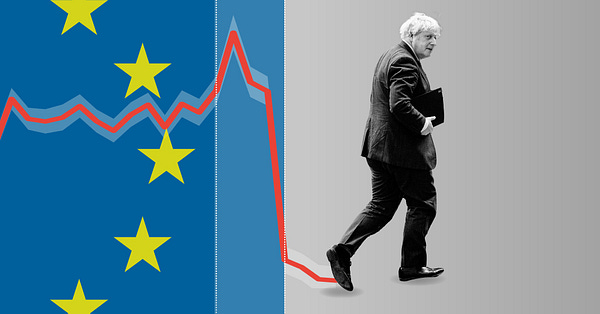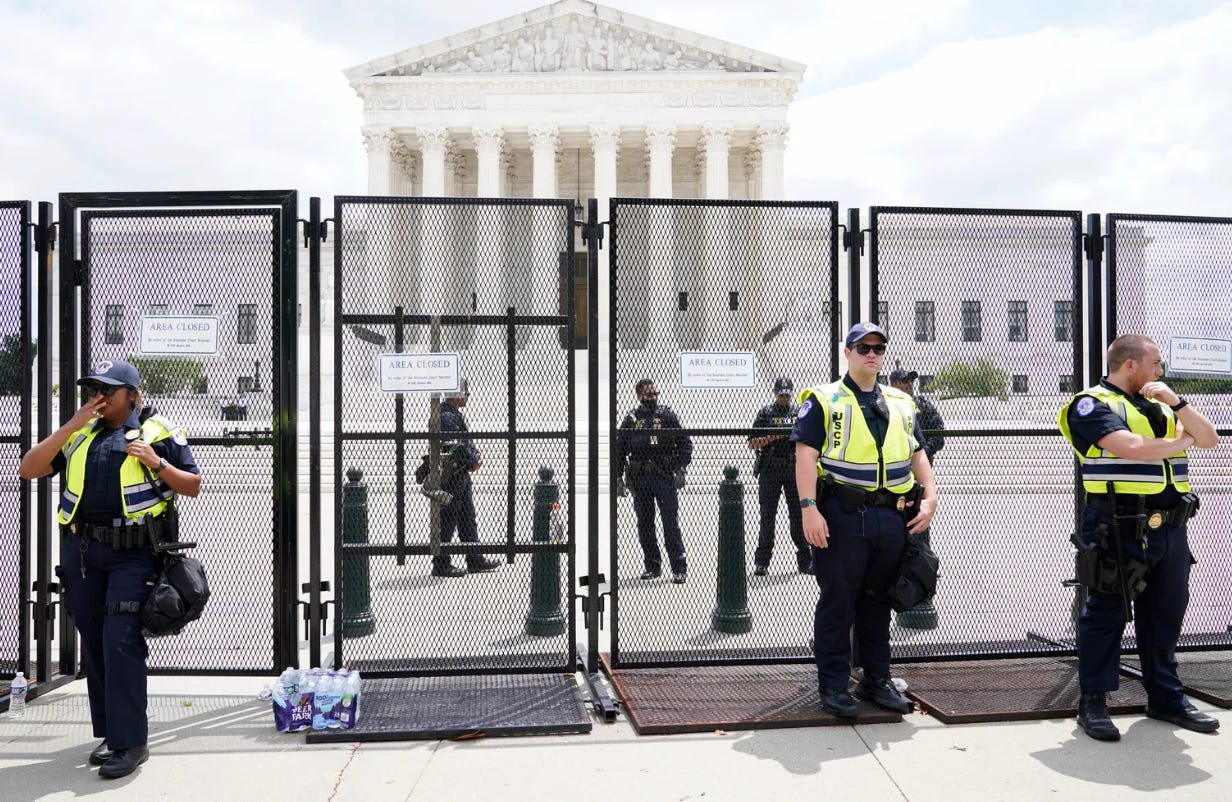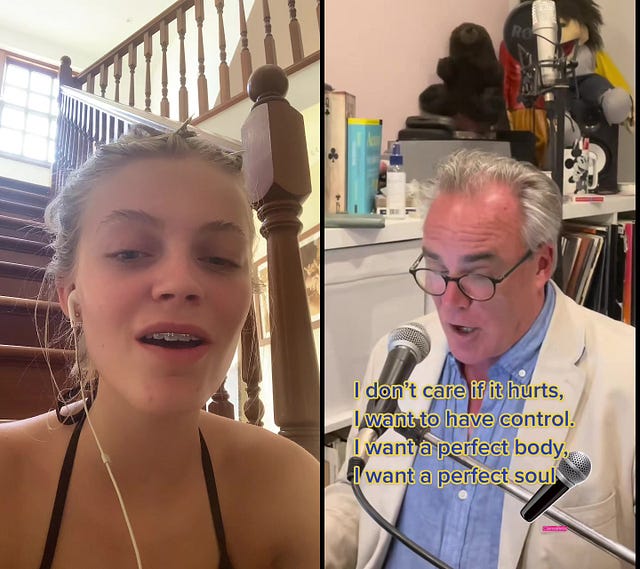Should politics be boring: the podcast
Can you remember the names of any Swiss Prime Ministers?
Peyton couldn’t. I couldn’t, and neither, I’m guessing, can you.?
You’ll find out why we can’t a few minutes in.
More generally why are some of our most dysfunctional social institutions highly theatrical — like politics and court cases? What’s driving all the dysfunction and what tweaks could be made to improve things?
We explore these issues, and go on a couple of interesting diversions that we might come back to — Around ‘ground-truthing’ in arguments and the way gender plays out in the recognition of expertise. An audio recording can be downloaded here.
An Alt-Left? (Me at Troppo)
What is it with James Burnham? I associate him — via Curtis Yarvin — with the alt-right. And Burnham is the founding text of what I call the Alt-centre (of which I am the founder and which I’m hoping to parlay into world domination if only I can get some time away from the keyboard). And here is Burnham and the Marxist left.
Anyway, I can recommend the first presentation. It addresses Burnham’s concerns well. … The talk seems very thoughtful and unflinching about the current state of the Marxian left (it’s in roughly the same state as the star of the parrot sketch).
[T]he ruin of the Marxist Left as it stands today is of a tradition whose defeat was largely self-inflicted, hence at present the Marxist Left is historical, and in such a grave state of decomposition that it has become exceedingly difficult to draft coherently programmatic social-political demands. In the face of the catastrophic past and present, the first task for the reconstitution of a Marxian Left as an emancipatory force is to recognize the reasons for the historical failure of Marxism. … If the Left is to change the world, it must first transform itself!
That seems an excellent platform for developing an alt-left, one not weighed down by historical commitments and the sentimentalism that has so marred the left and its politics in the past. Sad that, instead of dedicating themselves to reviving an emancipatory left, (or better still an emancipatory political outlook and/or politics), they want to revive a Marxian left. … Apart from anything else, this is guaranteed to bring in all the pimply, pamphleteering, petty politicians preparing their peripatetic pathway from the Socialist Workers’ Party to KPMG (via the Greens).
Conservatives should lament the Roe reversal
Henry Ergas was decidedly unimpressed with the Supreme Court Decision in Dobbs:
Few doctrines are more important to the rule of law than stare decisis. Taking its name from the Latin maxim “stare decisis et non quieta movere” – stand by the thing decided and do not disturb the calm – the doctrine directs courts to respect precedent and overrule it only when not to do so would be unconscionable. …
Declaring that it lacks the competence to assess whether wider access to abortion has brought any benefits that might need to be balanced against its possible harms, the issue is simply swept aside: having diagnosed limpness in Roe, the majority unhesitatingly prescribes amputation.
Yet seriously grappling with the social and economic effects of the decision being overturned was at the heart of Brown, just as it played a crucial role in many of the other judgments the majority purports to celebrate.
In short, Roe may be fatally flawed; but instead of demonstrating that, the majority dramatically lowers the standard the Supreme Court must meet before it reverses decisions that have stood for decades. …
Justice Clarence Thomas is disarmingly honest: he argues that all the decisions which rest on the same grounds as Roe should be overturned, regardless of the impacts. …
Despite the reassurances of Chief Justice John Roberts and Justice Brett Kavanaugh, a maelstrom may therefore lie ahead. It is easy, but unpersuasive, to say it could have been avoided had the Supreme Court not acted as a quasi-legislator. As legal historians have repeatedly shown, that role, which the court has exercised since 1803, was consciously thrust upon it by the founders, who were deeply suspicious of congress; to resile from it would not fulfil but frustrate the constitution’s original intention.
But wait, there’s more from SCOTUS: lots more
From the excellent Don Moynihan
Playing constitutional calvinball with individual rights along partisan lines is all too transparent. The underlying arguments can be easily picked apart. Adam Winkler, a UCLA professor who studies the history of gun rights in American skewered the cherry-picked historicism of the court’s decision on New York gun laws:
Most notable is that the Court says it is going to look to history and tradition, but then ignores history and tradition. The Court says that only gun laws which have historical precedent are constitutionally permissible, and then the Court dismisses all of the historical precedents for heavy restrictions on concealed-carry laws as outliers. The Court says that it is going to look to history, but dismisses early English common law as too old. The Court says that it is going to look to history, but dismisses any laws that were adopted after the mid-eighteen-hundreds as too young. The Court says that it is looking to history, but also says that shall-issue permitting is constitutional, even though shall-issue permitting is a twentieth-century invention. So the Court says that it is doing history and tradition analysis, but conveniently ignores any history it doesn’t like.
The court’s historical reasoning on abortion is similarly contestable.
With West Virginia vs. EPA. SCOTUS picked a case where the policy being contested — an Obama era interpretation of the Clear Air Act to regulate power plants — never went into effect, was reversed by the Trump administration, and is not coming back. The constitution specifies that the Supreme Court can only hear “cases or controversies” to limit the capacity of the court to pick and choose its own policy agenda. The fact that it is impossible for plaintiffs to demonstrate harm in a case where no actual policy is in play offered no constraint on the court in this case. (Remember, SCOTUS dismissed a gerrymandering case because voters in a very gerrymandered state were judged unable to show harm, and therefore lacked standing). Why do this? Because SCOTUS wanted undermine the administrative state, and the case provided a means to do so, and it did not feel compelled to show minimal restraint.
You didn’t hear much about the old conservative trope of “activist judges” from the right in the last couple of weeks, even as SCOTUS adopted its new role as policymaker-in-chief. That is because it has become harder to sustain the fiction that vaunted conservative modes of constitutional interpretation, originalism and attention to historical context, are vehicles to constrain activism. Instead, it is increasingly clear they give license to subjective interpretations that rationalize upending the stability of laws and rights.
The judges look at the constitution, into history, and are pleased to find their own values telling them to do what they want. And the rest of us have to live with the consequences.
West Virginia v. EPA
Today, the court’s decision … reversed almost 100 years of jurisprudence by arguing that Congress cannot delegate authority on “major questions” to agencies in the executive branch. At stake were EPA regulations that would push fossil fuel producers toward clean energy in order to combat climate change. The vote was 6 to 3, along ideological lines. …
The [Court’s] doctrine says that Congress must not delegate “major” issues to an agency, saying that such major issues must be explicitly authorized by Congress. But the abuse of the Senate filibuster by Republican senators means that no such laws stand a hope of passing. So the Supreme Court has essentially stopped the federal government from responding as effectively as it must to climate change. …
As recently as 2001, the Supreme Court unanimously rejected the nondelegation argument in a decision written by Justice Antonin Scalia, who said the court must trust Congress to take care of its own power. But now it has become law.
In the dissent, written by Justice Elena Kagan, Justices Sonia Sotomayor, Stephen Breyer, and Kagan argued that Congress had, in fact, properly given authority to the EPA to act, recognizing that agencies need to be able to respond appropriately to new and big problems. “Congress knows what it doesn’t and can’t know when it drafts a statute; and Congress therefore gives an expert agency the power to address issues—even significant ones—as and when they arise.” She noted that “[t]he Clean Air Act was major legislation, designed to deal with a major public policy issue.” “This is not the Attorney General regulating medical care, or even the CDC regulating landlord-tenant relations. It is EPA (that’s the Environmental Protection Agency, in case the majority forgot) acting to address the greatest environmental challenge of our time. She concluded: “The Court appoints itself—instead of Congress or the expert agency—the decision-maker on climate policy.I cannot think of many things more frightening.”
Kagan’s dissent noted the hypocrisy of the Republican justices claiming to be originalists when they are, in fact, inventing new doctrines to achieve the ends they wish. “The current Court is textualist only when being so suits it,” she wrote. “When that method would frustrate broader goals, special canons like the ‘major questions doctrine’ magically appear as get-out-of-text-free cards. Today, one of those broader goals makes itself clear: Prevent agencies from doing important work, even though that is what Congress directed.”
Senate minority leader Mitch McConnell (R-KY) applauded the ruling, saying it limited the power of “unelected, unaccountable bureaucrats.”


Democracy: more from ground zero
Meanwhile in Wisconsin, with the popular vote going consistently to the Democrats, gerrymandering keeps the state congress in Republican hands and the Congress won’t let the new Democrat Governor govern.
Schools can resist the trans wars
I really liked the humanity in this piece and hadn’t heard of Kate Clanchy’s experience of being cancelled previously. All pretty disastrous for all concerned I expect.
[In 1988] the notorious Section 28 was ushered into law. … It was a nasty piece of legislation, a cruel, regressive swipe against the Gay Rights movement, a law so heinous it summoned Stonewall into existence. Maggie, Maggie, Maggie, Out, Out, Out. She was nearly gone, anyway. Section 28 was a hand from the grave, a grab at popularity from a government finding itself suddenly out of touch with its times.
It rapidly became clear that no one was able to say what “promoting” homosexuality was, and that no one wanted to be the test prosecutor for such a foolish notion, either. No case was ever brought to court. The whole “Blob”, as Michael Gove was later to call us — the entire irreducibly liberal education establishment — was in support of gay rights. … We were worried about AIDS, not Section 28.
Gove hated the Blob for being so large and so resistant to change and for always fudging everything and thinking the same woolly wet things. He was right: the Blob did think alike, and we were progressive, and soft round the edges.
Teenagers have always been frantically interested in war and every kind of newness and anything a headteacher might call silly — that’s their job — but now teachers are, too. Braverman’s panic was not whipped up by the Right-wing press, but by people of the Blob. The advocates of banning books were not ancient Baronesses or Telegraph hacks but children’s librarians and teachers and people who write children’s books themselves. And it wasn’t a single picture book, either: according to Twitter, on any given day, “harm” in hyperbolic quantities can be found in hundreds of volumes. The mere presence in a school of someone with an unusual view may be called “actual violence”. In 1987, only the Daily Mail would monster teachers; now they publicly wish death on each other. Then, playground bullies echoed the homophobic language of comedians and tabloids; now, they use the language of the culture war.
Section 28 was most effectively defeated by being quietly ignored behind closed classroom doors. Now the doors have been opened by social media and schools and teachers are at risk, as Geoff Barton, the general secretary of the Association of School and College Lecturers put it “of being criticised whatever decisions they make and policies they adopt” on transgender young people.
The young people themselves are at even more extreme risk: they need quiet, privacy, calm, time, and professional help and all these things are being denied them. They also need an adult consensus around them, preferably a woolly, blobby one with plenty of fudge available. But the adults can’t come to a consensus. We can’t even allow each other the words to start the discussion. We have to say everything is a war.


Terry Eagleton on Wittgenstein
Terry Eagleton writes like other people breathe. This is a recent piece of his on Wittgenstein which I found interesting but quirky.
The oligarchs’ Supreme Court
Getting turkeys to vote for Christmas ain’t cheap: Cory Doctorow and Dodds’ overruling Roe v Wade
Cory Doctorow is an extraordinary productive, eloquent, constructive fellow. This isn’t a typical post from him — it’s a wild rant. But it’s full of amazing links.
Here’s something weird: in the wake of Roe v Wade in the 1970s, the Southern Baptist Convention repeatedly passed resolutions affirming the right to abortion and rejecting government interference in the decision to bear a child to term:
https://text.npr.org/734303135
Back then, white evangelicals were deeply suspicious of people who opposed abortion. Getting too worked up about the issue was a sign of crypto-papacy, and back then, white evangelicals hated Catholics:
https://doctorow.medium.com/schizmogenesis-755bbb6a8515
The weirdest thing about this is that today, white evangelicals will vote for anyone who promise to end abortion — even a philandering, foul-mouthed, unprincipled habitual liar and likely atheist. They are single-issue voters — whose single issue is something that, in living memory, they actually opposed.
They’ll vote for politicians like Scott Dejarlais, the GOP congressghoul from Tennessee who was re-elected three times. Dejarlais, an MD, impregnated one of his patients, then coerced her into getting an abortion. He also coerced his ex-wife into getting two abortions. But he reliably voted to ban abortion:
Dejarlais “received a 100% score by the National Right to Life Committee.”


Blue votes, red policy in South Dakota
South Dakota put abortion bans on the ballot several times, and each time the initiative was soundly rejected by voters:
In 2006, lawmakers passed a bill banning almost all abortions, which Gov. Mike Rounds signed. It set off a brutal campaign that became the dominant issue in a busy election year that featured a governor’s race and 10 other ballot issues. Voters rejected the ban by 56% to 44%.
Abortion opponents decided to make another run in 2008, collecting enough signatures to return abortion to the ballot. The key difference between the two measures was that the 2008 effort included exceptions for rape and the mother’s health. Opponents figured the lack of exceptions in 2006 had doomed their efforts.
They were wrong. The 2008 vote was nearly identical to 2006, with 55% rejecting the measure.
Despite these votes, the South Dakota government went ahead and made abortion illegal.
Does this sound familiar? Perhaps you recall the following:
South Dakota has voted to legalize marijuana use for adults.
Constitutional Amendment A, which passed with 53.4% of the vote, “legalizes the possession, transportation, use, and distribution of marijuana and marijuana paraphernalia by people who are 21 or older.”
The legalization was to take effect in 2021, but it never happened.
Wonderful graph: play it to yourself now!

Me on democracy (again!)
Harry Corbett, founder and mover and shaker behind the Intelligence Forum in London wrote me a letter (!) mentioning that, on account of encountering me on the net, he would like me to talk to his forum. I suggested that my ideas on democracy would be appropriate and so that's what I talked about. So … for anyone who wants to hear a 25 minute summary of my views and/or listen to an excellent question and answer session lasting nearly twice as long, here's the video. Audio available here.
 Tiktok failed to load.
Tiktok failed to load.Enable 3rd party cookies or use another browser


















